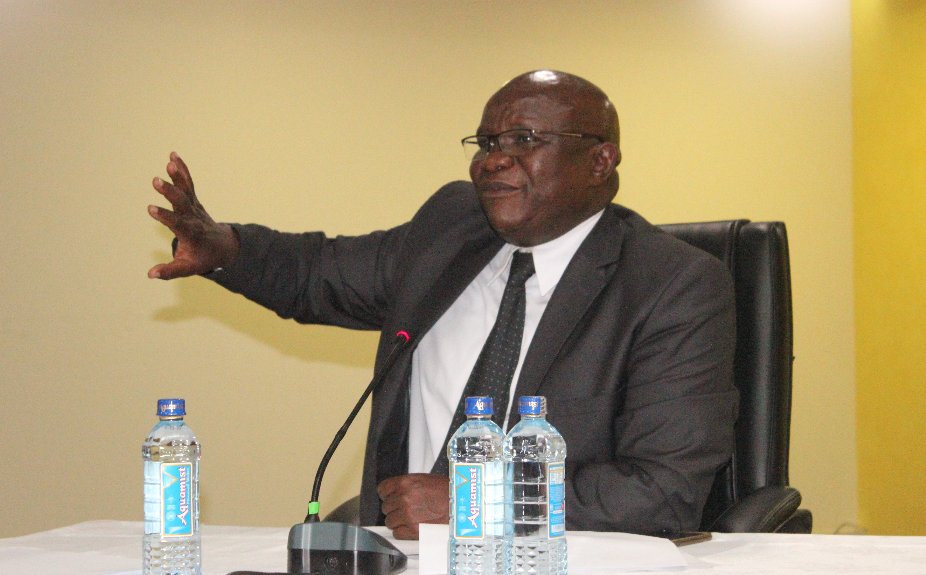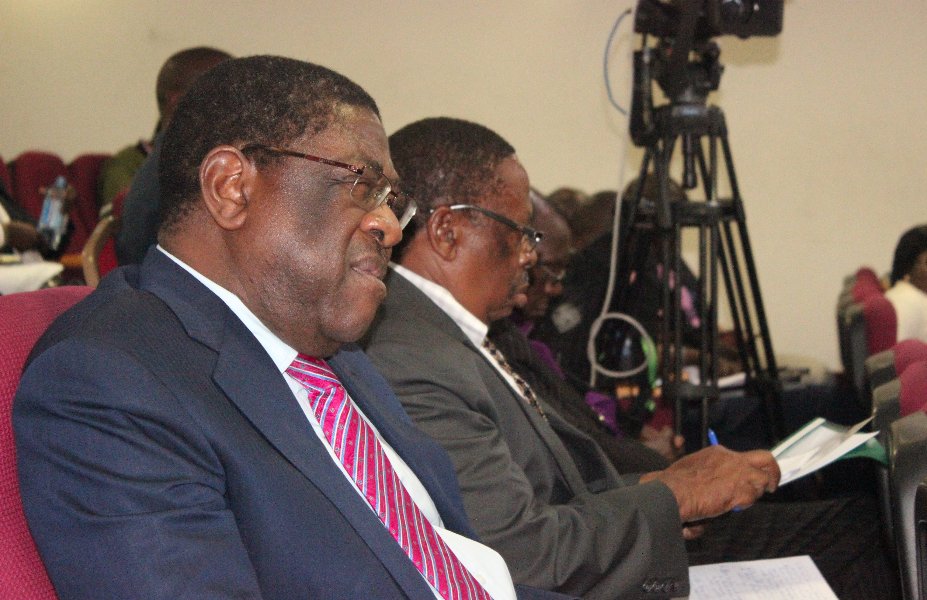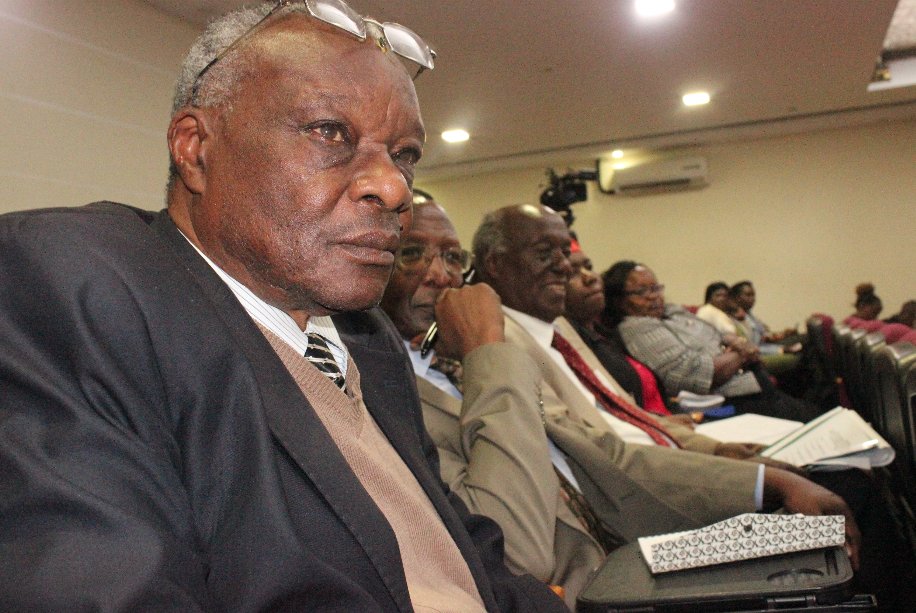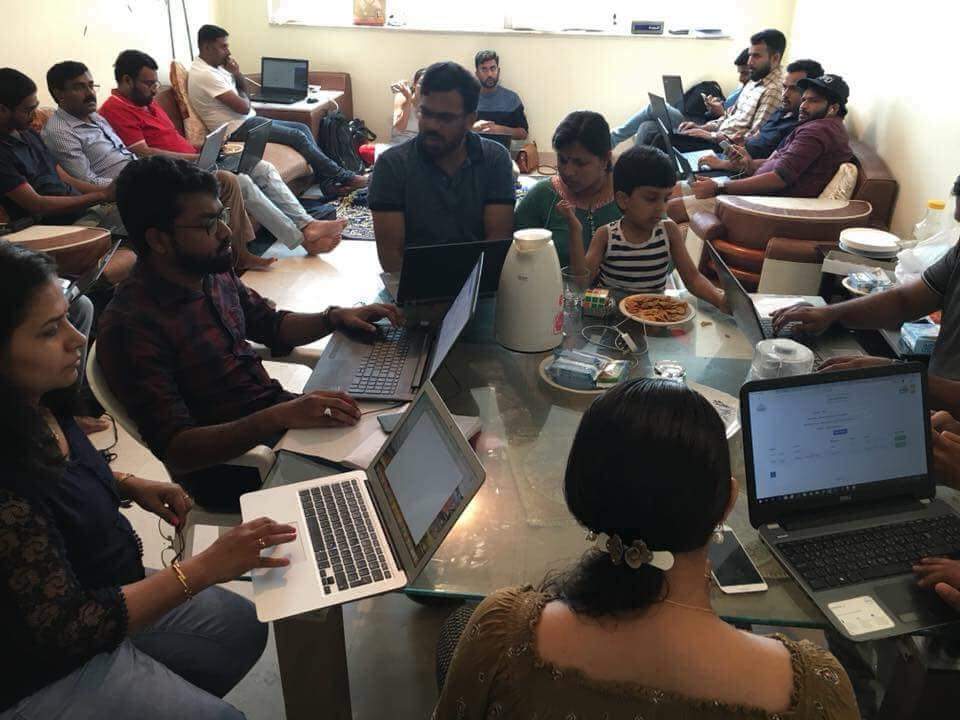Part 1=my problem with the lit.
Part 2=response to one recurring counterargument.
Part 3=some puzzles this leaves us with.
Part 4=some thoughts on how to resolve these puzzles+move the lit forward.
There is a lot of elegent modeling in “political economics” and “social choice theory.”
Such as in this talk by Eric Maskin on the problems with majority voting, and how it gave us Trump:
Live-tweeted here by @ben_golub
For instance
-It is hard to aggregate voters’ preferences.
-Some voting systems do have more problems than others.
-Majority rule (our system) is particularly bad.
-That’s one reason we got stuck w/ trump.
Namely, these models all assume voters are motivated by preferences over outcomes.
But that’s patently false!
For one:
Voters have zero influence on outcomes.
Economists know this. They have calculated the odds voters will be “pivotal.”
These odds are infinitesimally small.
We can check what voter behavior indicate about their motives. (Revealed preferences!)
E.g. Do we vote for 3rd party candidates? Oops. Voting for Nader didn’t help the environment. It gave us Bush.
Can this be explained by preferences over outcome? (Hint: no)
Voters seem to pay minimal attention to the actual efficacy of proposed policies.
After all, it isn’t *that hard* to check factcheck.org, to know refugees are not terrorists, and electing a con-man president is a bad idea.
They just shrug their shoulders, and say that requires a behavioral model, and is hard to math-ify, and revert to their assumptions of preferences-over-outcomes.
Thats not how science works.
Some might retort (as @Jabaluck has):
Figuring this stuff out is *hard.* Beyond the ability of voters.
Who, but an economist, can calculate the odds of being pivotal?
Who can tell which news channel to trust, if they each tell you the other is lying?
It’s true. People are bad at this stuff.
But is that because they are stupid? And it’s hard? Or because they are strategically ignorant? Or purposefully misinformed? (Correct answer: the latter two)
Let’s look at the evidence.
When presented in contexts where there isn’t a motive to draw one conclusion over another, people don’t make the same logical errors. Or have the same problem discerning truth from fiction.
And no one is going to trust the “I am not a scientist, but...” talking head on Fox, if instead of assessing climate change, she were assessing the lump on your chest.
Smarter better informed voters are more, not less, prone to make these logical fallacies. Presumably because they have more means to bend the truth.
*See the work of Dan Kahan @cult_cognition, nicely reviewed here:
There is plenty of evidence outside the domain of politics that people purposely remain ignorant/misinformed, when there is a strategic incentive to do so.
See the work of eg @CainDaylian and Jason Dana. Here’s a good example:
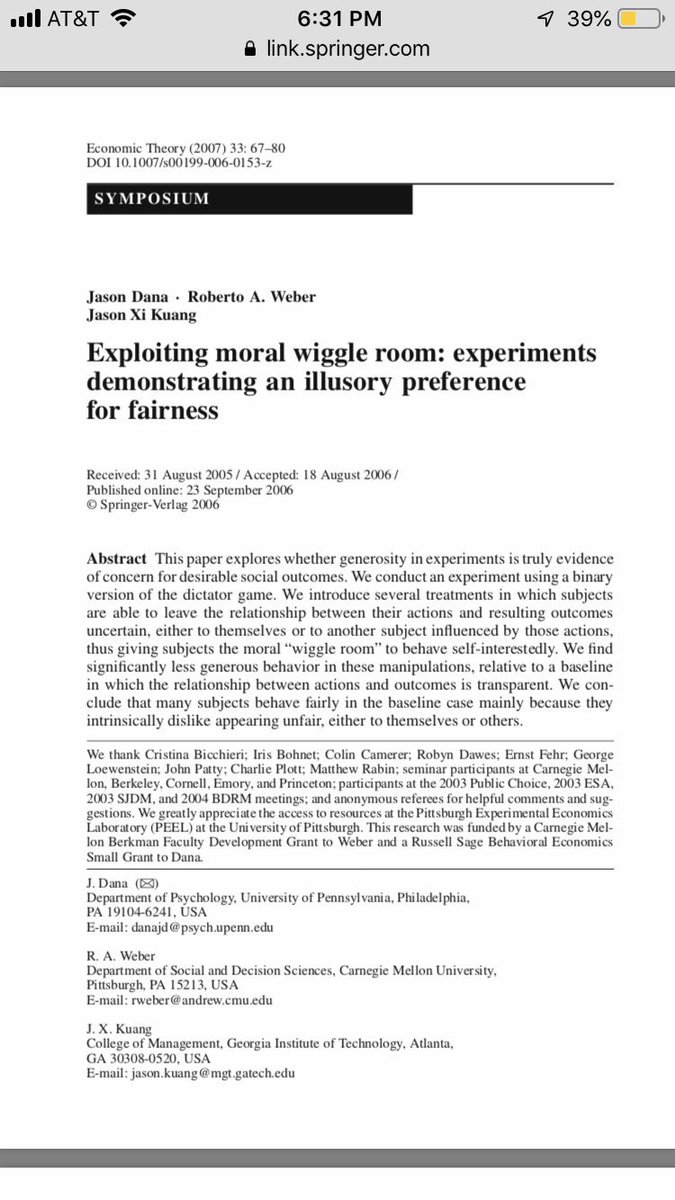
If people were really unable to discern the truth, then the econ models would still be absurd.
*Albeit not b/c voters wouldn’t have preferences over outcomes. But b/c voters would have no clue how their votes translate into outcomes-another key assumption in the models
So where does this leave us?
With a few puzzles, for starters.
Puzzle 1:
Why, despite this terrible preference-over-outcomes assumption, do these models still capture some valuable insights, such as the insights from Maskin listed in tweet 4 above.
People often do vote for the outcomes that they would prefer.
Eg black people are less likely to vote for a racist president.
Why?
Puzzle 3:
When we expand the vote, more people’s welfare *is* taken into consideration by the elected representatives.
Why?
Outcomes do clearly enter our preferences. But why? And when?
For that we need to think about what shapes our political preferences. Part 4 takes a stab at that.
What are the actual, material incentives voters face? The actual consequences to their welfare that come from their own vote?
Let’s think about that. And see if it gives us any bite. (Foreshadowing: it will.)
1) Coalitions of voters that are well managed, will pressure their members to vote a certain way, and that way will typically be what benefits that coalition as a whole, or it’s managers.
2) Voters use their vote to signal their values.
Implication 1:
Both of these motives will get deeply internalized. And shape our political preferences^.
Now, consider what this tells us about our political preferences:
So long as motive (1) bites, (and the effect of (2) are minimal), we will get Maskin preferences. (And the above puzzles resolved).
But not always. (And that should answer the “when” question).
Thoughts or suggestions for what other actual material incentives are at play, or how to formalize these, would be very much appreciated.
Or anything else my analysis is missing. Thanks.

